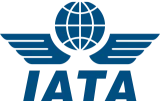Every year millions of people cross the border of the USA. Most of them need a visa to stay legally in this country. There are approximately 185 types of visas in the USA. Two main visa categories are immigrant and nonimmigrant visas.
Nonimmigrant visas, e.g., student, tourist, or work visas, are issued to those who plan to stay in the US temporarily.
Immigrant visas are held by people who settled down in this country and want to live and work there permanently.
Nonimmigrant USA visas
Nonimmigrant visas are directed to foreign travelers who want to enter the United States for a temporary time. The exact visa type is related to the travel purpose. These may be tourism, work, business, or medical treatment-related reasons.
Immigration law defines different types of visas that are granted depending on the purpose of travel. An applicant turns directly to the U.S. embassy or consulate to obtain a tourist visa (B-2) or business visa (B-1). Those who want to study or work in the U.S. must often provide additional documents before they apply for a visa.
All types and requirements are available on the USCIS or U.S. Department of State websites.
Please note that a visa does not guarantee that you will be allowed into the country, only that you are authorized to enter the country. The final approval will be given at the airport where you arrive.
Here are the main nonimmigrant visa categories:
- Business/Tourist Visa – B1 and B2 visas are nonimmigrant US tourist visas issued to business travelers intending to arrive in the United States for temporary reasons.
- Work Visa - issued for those who intend to work in the USA
- Student Visas - implemented for young people who want to study in the US
- Transit Visa (C Visa) - transit visas are addressed to those who pass through the USA to reach another destination (e.g., transfer at the airport)
- Journalist and Media Visa (I Visa) - this type of Visa is addressed to foreign journalists, reporters for magazines and newspapers, or other employees of electronic media like producers, editors, etc.
- Domestic Employee Visa - the Visa of this type may be given to people traveling to the United States with their employers. Among eligible arrivals are nannies, chefs, au pairs, gardeners, and other employees hired to care professionally about the employer or his family. These persons may apply for a B1 visa.
- Ship Crew Visa (D Visa) – is a document issued for members of a ship or airplane crew working on the territory of the United States.
- Religious Employees Visa (R1 Visa) - persons eligible for this Visa must work for a well-known religious institution. These are workers living and working in a reputed religious denomination located on the territory of the USA. They are priests, catechists, rabbis, church workers, etc.
Immigrant USA visas
An immigrant visa (Green Card) is addressed to foreign nationals who intend to permanently live and work in the USA. Thus he wants to apply for a lawful permanent resident (LPR) status. Newcomers usually have sponsors who apply on their behalf. For example, experts or investors can submit an immigrant visa application on their own. U.S. Citizenship and Immigration Services (USCIS) are responsible for verifying applications.
A person becomes an immigrant and acquires the right to a permanent stay when the visa application is verified and accepted by the CBP Officer.
Below you can find precise visa categories and requirements on the USCIS or Department of State websites.
- EB-1 (Extraordinary Ability green card) - only persons with extraordinary skills like artists, scientists, doctors, businessmen, or sportspeople who are the best among other talented people in their discipline. The applicants for this type of visa must prove great achievements and support them with rich documentation. An example of an individual eligible for the EB-1 visa is a Nobel Prize winner.
- EB-2 – this visa type is also issued to talented and skilled persons who work in arts, medicine, science, or business area. The officials responsible for verifying visa applications classify arrivals by their skills, knowledge, experience, etc.
- EB-3 – this work and stay permit involve fewer requirements than EB-1 and EB-2 visas. In this case, applicants must prove they have a permanent job offer from a U.S. company, but they may be both professionals and unskilled workers.
- EB-4 – this document is issued mainly to religious employees, U.S. government employees, armed forces members, Panama Canal Zone workers, etc.
- EB-5 (Immigrant Investor Programme) - this green card may be obtained by investors who will use the required amount of money to invest in a U.S. business. The visa holder is permitted to live and work in the United States.
Besides the numerous visa types addressed to people of different professions, religions, experiences, and nationalities, the government of the United States implemented the Visa Waiver Program (VWP). This program allows eligible travelers to enter the USA for tourism or business-related reasons and stay there for up to 90 days without a visa.
Before travel, eligible visitors must obtain the ESTA (Electronic System for Travel Authorization) approval and meet all requirements. They may still apply for a visitor visa if they prefer possessing a paper visa.




